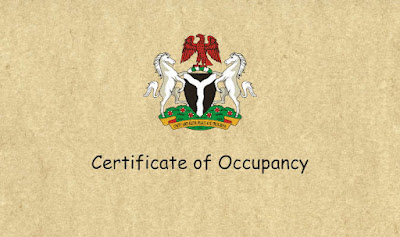All you need to know about Certificate of Occupancy with Realtor Diamond Bekee
A Certificate of Occupancy (C of O) is a crucial land title document in Nigeria that verifies ownership of land or property. When buying land or property in Nigeria, obtaining a C of O is one of the essential steps to take.
Click here to download the PDF file
The difference between Certificate of Occupancy (C-of-O) and Right of Occupancy (R-of-O)
If you're looking to purchase land or property in Nigeria, it's important to understand the difference between a Right of Occupancy (R of O) and a Certificate of Occupancy (C of O). While both documents relate to ownership of land, the R of O is just an offer of the said plot of land, while the C of O is the official and certified right of ownership.
The C of O is the superior title, as it cannot be revoked without compensation paid for any compulsory government acquisitions. In comparison, the R of O is a weaker title and can be revoked without compensation. This is why lands with a C of O have a higher market value compared to those without.
You may need a Certificate of Occupancy for a variety of reasons, including property development, converting a property, or a change in ownership. However, it's important to note that some cities, such as Abuja, do not readily issue new certificates of occupancy. In such cases, a power of attorney registered in favor of the new land or property buyer can serve the same purpose.
It's recommended to perfect the title on your land from a Right of Occupancy to a Certificate of Occupancy as soon as possible, and to seek the help of an experienced lawyer when dealing with any land or property transactions.
Where to get a Certificate of Occupancy?
You can get a Certificate of Occupancy through the appropriate state government — specifically the department in charge of land matters.
In Abuja, this department is known as Abuja Geographic Information Systems (AGIS).
In Nasarawa this department is Known as Nasarawa Geographic Information Service (NAGIS)
How do you obtain a Certificate of Occupancy?
Along with managing existing Certificates of Occupancy, land administration departments also deal with fresh government land applications — ultimately leading to the issuance of new Certificates of Occupancy. Government land applications involve a number of administrative fees that need to be paid, before being issued a C of O.
The other way to obtain a Certificate of Occupancy is purchasing genuine property/land from someone who has such (on the secondary market). You can then proceed to change the ownership title at the land registry.
Cost of obtaining of a Certificate of Occupancy
The cost of obtaining a C of O varies from state to state and is generally determined by the fair market value (FMV) of the land in question. In states such as Lagos or Abuja, the cost is relatively higher compared to other states. The cost of getting a C of O in Abuja, for instance, is calculated per square meter of land and depends on which phase of the city the plot is located.
Benefits of having a Certificate of Occupancy
Having a C of O comes with several benefits, including:
- Clearly establishes you as the legal owner of a plot of land and prevents disputes of ownership.
- Protects your rights to the land by preventing the government from repossessing or revoking your ownership without compensation.
- Increases the value of your land, particularly in Abuja where the process of obtaining a C of O is long and expensive.
- Can be used as collateral for loans from financial institutions, such as banks.
Other important title documents besides a Certificate of Occupancy
While a C of O is a crucial land title document, it is not the only document that you should consider when buying land or property. Other important title documents, such as the deed of assignment, deed of transfer, deed of gift, vesting orders and assents, also need to be reviewed, especially for built or developed properties that may have changed ownership multiple times.
To ensure a successful and legitimate land or property transaction, it is recommended to hire an experienced lawyer who can guide you through the process and review all relevant title documents. Don't just rely on the C of O and make sure to pay attention to the ownership history of the property and how the vendor came to own it.
FEATURED POSTS
7 Factors to consider when buying a plot of land in Nigeria.
Understanding Land Documents In Nigeria Real Estate Industry
All you need to know about Certificate of Occupancy
12 Factors to Consider Before Purchasing Land for Your Dream Home

~2.jpeg)
.jpeg)
.jpeg)
.jpeg)
.jpeg)
.jpeg)

.jpeg)
Comments
Post a Comment